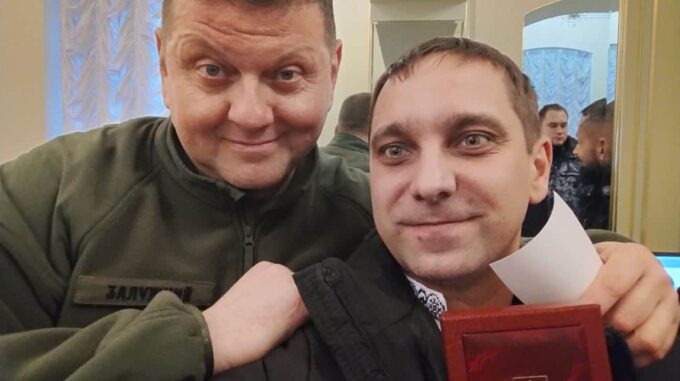Former military doctor Roman Zamriy, known in medical and military circles under the pseudonym “Yoda,” recently disclosed a shocking and alarming story about his recent captivity at the hands of representatives of the Territorial Recruitment Center (TКC)

According to him, despite possessing documents confirming his right to a deferment from mobilization, he was illegally detained and held under arrest for three days in conditions akin to imprisonment, which has caused outrage and concern among the public and human rights organizations. Zamriy shared his account on social media platforms, where he detailed the events leading up to his three-day detention in the Chernivtsi region. According to the medic, everything began on June 4 at a checkpoint near the town of Khotyn. There, one of the TКC representatives took his documents for verification and later offered to take him to the military commissariat to consider his deferment request, referencing official documents that grant such an extension. "At the entrance to the military commissariat, this employee asked for my phone to enter photos of my documents confirming my right to deferment into the database, but he immediately took it and disappeared without explanation. Later, an officer appeared and told me I would be sent for a medical examination, during which my status would supposedly be decided. It seemed like a normal procedure, like everything was proceeding according to plan, and after the medical commission, I would get my documents back," Zamriy recounts. However, promises turned into a farce. According to him, after several hours of uncertainty, he was moved into a dark room with doors closed from the outside. The window looked out onto a dark warehouse with metal grilles. There, he was likely held for three days without explanation as to why his documents were considered invalid or missing. "My phone was with them, and I insisted that I had digital copies of all my documents. However, they told me, 'There’s no phone, so there are no documents,'" describes the former soldier. During these days, he and other detainees were transported by bus to an unknown location and forced to stay in a closed, official premises without food or water for long hours. Over time, as law enforcement officers and TКC representatives no longer hid from his view, he was struck by the unexpected reaction of a military officer to whom he was brought — the officer was outraged at the behavior of the Chernivtsi TКC staff, who seized the phone and tried to mobilize a person who has a right to a deferment. Zamriy emphasizes that among TКC representatives, there are also compassionate and decent workers. "Thank God, not all of them are like that. But these three days resemble captivity — without food, a phone, or any contact with the outside world. This was true psychological pressure and humiliation that’s hard to forget," he says. He added that such an experience is difficult to compare with the captivity he experienced in Russia in 2014. "Although I wasn’t beaten — unlike other soldiers I saw nearby — the feeling of helplessness and psychological oppression remained in my memory forever. I am grateful that I was not tortured, but the truth is that the methods used are simply shameful for our system. This is not mobilization; it’s abuse," he concludes. Importantly, Zamriy’s story is just the tip of the iceberg. It is known that as early as 2014, he volunteered to go to the front and participated in hostilities in the hottest hotspots — from Kherson to Bakhmut. After the large-scale invasion by Russian forces, he underwent banking and medical training, served as the head of medical services, and managed to save at least 700 Ukrainian soldiers on the front lines. In July 2023, he returned to civilian life and began working in family medicine. The verdict from high authorities has not yet been issued, but his awarding of the Order of "For Merits" III class, which took place on January 22, 2024, in Kyiv, serves as proof of the high appreciation of his contribution to the defense of Ukraine. Currently, Ukrainian society is discussing this story, with human rights advocates and lawyers emphasizing the unacceptable violation of human rights and the need for a thorough investigation of so-called "crisis" and shady situations within military authorities. The story of Zamriy confirms that even in modern Ukraine, there exists a system capable of violating fundamental citizens’ rights and employing cruel and illegal methods to achieve its goals. An investigation is underway, and the public hopes for justice, because every Ukrainian defender deserves protection and fair treatment from the state.

